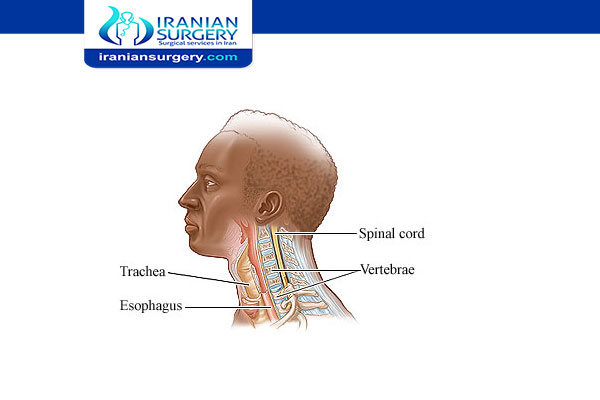Diagnosing Fractures in the Neck
Can a neck fracture heal on its own?
Can you have a neck fracture and not know it?
Cervical Fracture Treatment
How do you sleep with a broken neck?
How serious is a neck fracture?
Cervical Fracture Symptoms
What are the signs and symptoms of a cervical fracture?
- Pain, tenderness, swelling, or muscle spasms in your neck
- Problems moving your neck
- Trouble swallowing
- Loss of feeling or pinprick pain in your arms or legs
- Numbness, pain, or tingling at the base of your head
- Double vision or loss of consciousness
- Decreased muscle mass
- Playing certain sports that may result in neck fracture, such as football, rugby or ice hockey
- Not wearing your seatbelt or protective sports equipment
- Head or other traumatic injury, such as severe chest trauma, pelvic or femur fractures
- Violence
Read more about: Cervical Fracture Types
Diagnosing Fractures in the Neck
- You will most likely be taken to a hospital. The doctor will ask about your symptoms, physical activity, and how the injury occurred. The doctor will examine the injured area and perform a complete neurological exam.
- Imaging tests may include:
- X-rays to look for breaks in the bones or a dislocation of the vertebrae
- MRI provides cross-sectional images to look for spinal cord damage
- CT scan to analyze bone injury and to see if the spinal cord is compressed by a collection of blood
Read more about: Risk factors for cervical cancer
Can a neck fracture heal on its own?
Broken necks may be simple breaks that can heal within just a few weeks, or they can be life-altering injuries. Because of this, all neck breaks should be treated as medical emergencies. The treatment of a cervical fracture depends upon which cervical vertebrae was damaged and the extent of the fracture. A minor (compression) fracture is often treated with a cervical collar or brace worn for six to eight weeks until the bone heals on its own. A more severe or complex fracture may require traction, or surgical repair or a spinal fusion. Surgical repair of a cervical fracture can result in a long recovery time followed by physical therapy.
Read more about: Cervical spinal stenosis
Can you have a neck fracture and not know it?
The most common symptom of hangman's fracture is neck pain following a fall or motor vehicle accident. However, if the trauma has caused other damage to the body, the neck pain may not be immediately noticed. It is possible for neck fractures to go undetected by doctors initially, even using scans and x-rays. In that case it could have been a subtle fracture that you couldn't have seen.
Cervical Fracture Treatment
A neck fracture is a severe injury that can lead to paralysis or death. It depends which bones are broken and whether there is spinal cord injury. The goals of treatment are to manage pain and support the bone. Options may be:
- Medicine to ease pain
- A brace or collar to keep the neck in line as a minor fracture heals
- A stiff brace or halo vest to treat more severe fractures
- Exercises to help with muscle strength and range of motion
- Surgery
Some fractures cause pieces of bone to come apart. These pieces will need to be put back into place. Surgery may be done using plates, screws, or wires to reconnect the pieces and hold them in place.
Read more about: Cervical Fracture Surgery
How do you sleep with a broken neck?
Always wear your collar in bed unless told otherwise by your consultant. Your bed should be firm. it (unless instructed otherwise). Sleep on your back, if this is uncomfortable sleep on your side. Soft collars worn at night may prevent your neck from collapsing. This may help decrease morning pain or stiffness. The collar is particularly good if you have chronic neck pain.
How serious is a neck fracture?
A neck fracture is very serious and can lead to paralysis or possibly death. A person with a neck injury should not be moved without competent medical care, which is needed immediately.
Read more about: Cervical fracture dislocation
10 common questions about cervical fracture symptoms
[kkstarratings]


